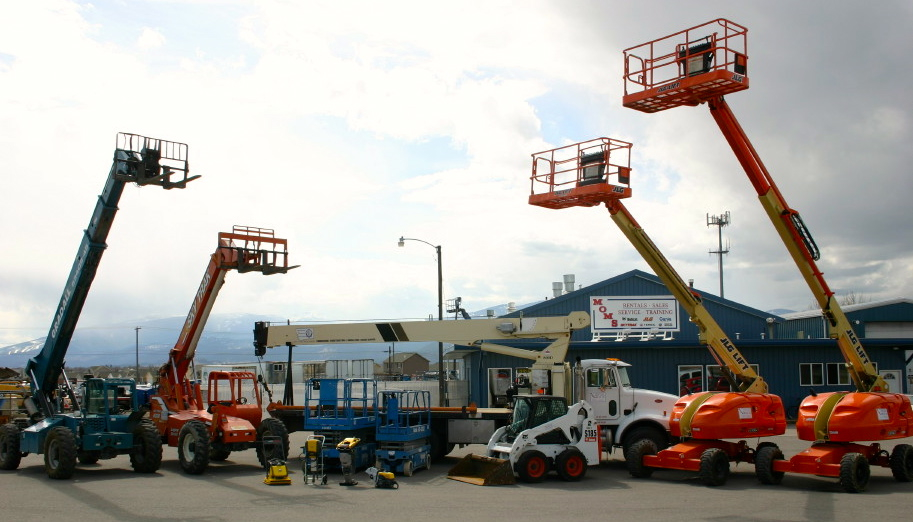Scissor Lift Rental: Safe and Reliable Lifting Solutions
Maximize Your Budget Plan by Recognizing the Costs Connected With Building Devices Rentals
Recognizing the complete extent of expenses related to construction tools services is vital for maximizing your budget plan. While the preliminary rental fee may seem straightforward, countless additional expenditures-- such as transport, fuel surcharges, and maintenance-- can rapidly build up, impacting your monetary planning. Additionally, knowing different costs and the complexities of rental arrangements can assist stay clear of unexpected financial burdens. What approaches can be employed to effectively take care of these expenses and make sure a more effective rental experience?
Review of Rental Costs
When taking into consideration construction devices services, understanding the linked costs is paramount for effective budgeting and project preparation. Rental costs can vary substantially based upon several elements, including tools kind, period of leasing, and location. The preliminary rental charge commonly shows the tools's market need and its associated operational capacities, affecting the general expenditure.
Along with the base rental rate, secondary costs might arise, such as transportation charges, fuel additional charges, and maintenance charges. It is important to account for these extra costs to accurately evaluate the overall expense of renting tools. The rental period can impact rates; longer services might certify for discounted prices, while short-term rentals may sustain greater everyday fees.

Break Down of Rental Rates
A comprehensive understanding of rental rates is crucial for specialists and job supervisors aiming to optimize their budgets. Rental rates for building devices commonly include several components, consisting of base prices, time-based fees, and usage costs.
Base rates are the core charges connected with the rental of the devices, typically identified by the kind and size of the equipment. These prices can differ considerably, influenced by aspects such as equipment need, schedule, and local market fads. Time-based charges, which might be daily, weekly, or monthly, serve to accommodate various task timelines and rental periods.
Additionally, rental prices may include use fees, which are relevant when devices is made use of beyond a specified limit, making sure that the rental company can represent wear and tear. Seasonal need changes can also impact rental prices, with peak building periods normally regulating higher rates.
Furthermore, comprehending the rental company's plans pertaining to upkeep and insurance coverage can provide further insight right into the general price framework. By examining these components, specialists can make enlightened decisions, making certain the selection of rental equipment straightens with both task needs and budget restrictions.
Extra Charges to Consider
Understanding the ins and outs of extra charges is vital for service providers to manage their general leasing costs efficiently. Past the conventional rental prices, various auxiliary fees can significantly affect the overall expense of tools service. These fees frequently include distribution and pick-up costs, which can differ based upon distance and logistics associated with moving the equipment to and from the task site.
In addition, some rental business might enforce gas additional charges if the equipment is returned with less gas than when rented. It is additionally important to understand possible cleansing fees, especially for customized equipment that requires detailed maintenance after usage.

Thoroughly examining the rental arrangement and making clear these extra fees upfront can aid professionals stay clear of unanticipated prices and ensure that budget plans continue to be undamaged throughout the job lifecycle.
Upkeep and Repair Work Expenses
Regular repair and maintenance expenses are often neglected elements that can dramatically influence the overall expense of building and construction equipment leasings. When renting out tools, it is crucial to take into consideration not only the rental costs however also the potential expenses connected with keeping the equipment in ideal operating check my source problem.
Lots of rental companies include basic maintenance as part of the rental contract; nevertheless, much more unanticipated malfunctions or considerable repairs can result in extra costs. It's important to review the rental agreement thoroughly to comprehend what maintenance solutions are covered and what duties drop on the tenant.
In addition, devices that is not well-kept can lead to ineffectiveness at work site, potentially boosting and triggering hold-ups job prices. To alleviate these dangers, it is suggested to conduct normal assessments and keep open communication with the rental supplier relating to any type of concerns that occur throughout usage.
Insurance Coverage and Liability Expenses
Insurance coverage and responsibility prices are crucial components that can dramatically influence the total expense of construction tools leasings (rental company near me). These expenses ensure that both the rental company and the client are secured from prospective economic losses emerging from accidents, damage, or theft during the rental duration

Additionally, customers need to be aware of any type of deductibles or exclusions in the insurance plan, as these can influence prospective out-of-pocket expenses. Recognizing the terms of any insurance protection is essential to avoid unanticipated costs. Eventually, budgeting for insurance and obligation costs can aid ensure a smoother rental experience and secure versus financial dangers connected with building and construction tasks.
Conclusion
In verdict, an extensive understanding of the expenses associated with building and construction equipment services is important for reliable budget plan management. Ultimately, educated decision-making relating to devices services adds to the overall success of building endeavors.
Rental expenses can differ considerably based on a number of aspects, consisting of equipment type, period of leasing, and area (dozer rental). The rental duration can influence pricing; longer services might qualify for reduced rates, while short-term leasings might incur greater everyday costs
By performing detailed research study and involving with trustworthy rental companies, specialists can efficiently navigate the complexities of rental pricing, ultimately optimizing their economic resources.
Past the common rental rates, different supplemental charges can dramatically affect the overall expense of devices service. Rental business often provide liability insurance policy that covers injuries to 3rd events or damages to building, while a fantastic read equipment damages insurance can cover the expense of repair services or replacement if the rented equipment is damaged.